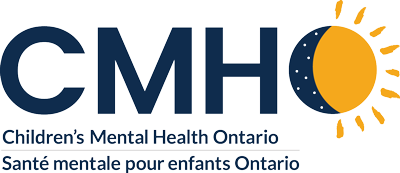Toronto, ON, March 4, 2021: The recent and abrupt closures by the Ministry of Children, Community and Social Services (MCCSS) earlier this week of 26 Ontario Youth Justice Centres has an enormous impact on youth with serious mental health issues. “This unilateral action has cut access to the only available and evidence-based complex and intensive mental health program to some of the provinces hardest to reach youth who are in desperate need of the services,” said Kimberly Moran, Children’s Mental Health Ontario, CEO. “There is nowhere else for these adolescent boys and girls, who are disproportionately Black or Indigenous, to receive the proven clinical treatment required to meet their needs.”
Children’s Mental Health Ontario is calling on the Government of Ontario to work with them and other agencies and community leaders to find a treatment pathway for the estimated 25 percent of kids in Ontario’s youth justice system who need specialized mental health services.
Without consultation, MCCSS has closed and reduced youth justice facilities across the province where vulnerable youth were receiving mental health services. Experts are clear that the rates of mental health issues in the youth justice population are as high as 90 per cent, with one quarter requiring a specialized “significant and immediate” treatment response.
Impact on the North:
Youth in northern Ontario are disproportionately impacted by this decision and CMHO is particularly concerned about their wellbeing and the abrupt way they were removed. Intergenerational trauma is an important factor in these youth being in the justice system and this action has caused more trauma. CMHO is working with Grand Chief Alvin Fiddler of the Nishnawbe Aski Nation to support advocacy on behalf of these children and youth.
While we understand that many youth justice facilities had low occupancy, changes should have occurred with consultation as there are huge consequences for youth as a result. In addition, many multi-service community child and youth mental health providers have also received notice that their mainstream youth justice programs will close, which will further strain their organizational capacity to effectively deliver needed mental health services.
Impact on Provincial Program for Youth with the Most Complex Mental Health Needs and Highest Risk Behaviours:
Also of concern, MCCSS has cut all funding for its intensive mental health program for youth with complex and chronic mental health issues in custody or detention at Syl Apps Youth Centre (SAYC). This program that serves youth with the most complex mental health issues has been consistently well above provincial utilization rates which means that highly vulnerable and high-risk marginalized youth will not receive the intensive treatment they need. Reviews have noted the over-representation of Black and Indigenous youth in the justice system. At SAYC, more that half of the youth receiving specialized mental health treatment are Black, Indigenous and racialized. Typically the clinical profiles of these youth are more complex and more acute than those found in hospital adolescent inpatient units. Unfortunately, these affected youth pose a clear and present risk to themselves and others – over half of these youth have attempted suicide in their lifetime.
Contrary to the Ministry’s statement of underutilization, when utilization is taken as a function of “funded beds” and the requirement to preserve extra capacity for urgent referrals, SAYC’s rates of occupancy reach nearly 80 percent in 2020/21 highlighting that significant need for these beds still exists within the system. This high rate of need has been consistent over the last three years, and SAYC often maintains a wait list for youth justice referrals. This high rate of need has been consistent over the last three years.
Youth who receive care at SAYC have complex mental health needs, with an average of four diagnoses. Their profiles include: high suicidality, major depression, bipolar disorder, personality disorder, psychosis. Without SAYC, youth with complex mental health issues in the Ontario youth justice system will not have equitable access to the mental health services that other youth in the community do.
We are confused by the investment made by the Government of Ontario to the Secure Treatment Program provided at the same facility on Saturday, which will provide services to youth not currently engaged in detention – making mental health services inequitable for some of Ontario’s most under-served youth.
We are advocating and want to work with the government to address all of these issues.
-30-
For more information, please contact:
Kathleen Powderley, Kathleen@responsiblecomm.ca, 416-803-5597.


Once again , indigenous people and minorities are the first cuts the government makes. What are these youth supposed to do? Sending them far from their homes and their culture is not the right way to treat their problems. They need interaction with family so that a plan for at home can be put in place with proper follow-up. Do not close all these homes.
All part of Ford Government’s inhumane work slashing $1 Billion form social services and cutting away lifelines of support for the poorest and most vulnerable